(The Law was adopted on March 8, 2001 and is issued for the state and all permanent residents to fight against corruption and its devastating effects. The Law contains 5 parts and 23 articles in all.
Title 1 of its nature)
Art. 1.- Creation.- The Commission for Civic Control of Corruption, created by a constitutional mandate, is a juridical entity of public right with autonomy and economic, political and administrative independence who will act in representation of the citizenry. It has its headquarters in Quito, and it has the opportunity of constituting delegations in the provinces and counties where the CCCC considers convenient.
Art. 2.- Object.- The Commission will perform the necessary actions for the prevention, investigation, identification and individualization of acts of corruption, as well as for the diffusion and promotion of values and principles of transparency in the management of public issues. For this purpose, it will receive, process and investigate claims about acts of corruption done by the representatives of public election, magistrates, heads of the, authorities, functionaries and people who work in the institutions of the State. It will also investigate the particular individuals involved in the act referred to, and if criminal responsibility is found in the investigations, the conclusions will be put under the knowledge of the Public Ministry, General Comptroller of the State , or the jurisdictional entity which is competent under the law.
The Commission will take care, preferably, of claims of cases of bribery, extortion, concussion, agiotage, frauds in the financial system and other similar actions that might affect the resources of the State or the institutions of the public sector including those in which the private sector is a shareholder.
Art. 3.- Conformation.- The Commission for Civic Control of Corruption will be conformed by seven principal members, and an equal number of substitute ones. They will hold their functions for four years and they can be reelected once.
Art. 4.- Appointment.- The members of the Commission will be appointed by Electoral Colleges conformed by each one of the following entities:
1. National Board of Universities and Technical Schools
2. Professional Guilds, that are legally recognized and representative from each sector and with a national character.
3. The Ecuadorian Association of Newspaper Editors and TV Channels, Broadcasting, and the National Federation of Journalists.
4. The National Federations of Chambers of Production.
5. Trade Unions and Organizations of Indigenous, Afro Ecuadorians and Rural People found at a National Level, and that are legally recognized.
6. National Organizations of Women that are legally recognized, and,
7. Human Rights and Consumer Rights Organizations that are legally recognized.
The heads of the preceding organisms, cannot be members of the Commission, unless they quit their managerial functions.
Each of these entities will appoint a principal member with its respective substitute member, who will replace him or her, in case of suspension or of temporal or definitive absence. In this last case, the substitute member will complete the period for which the principal member was elected.
The Supreme Electoral Tribunal will convoke the respective Electoral Colleges, with 30 days of anticipation to the date of the election in order to make them proceed with the appointments.
The Rulings of this law will establish within the procedure of the election, the mechanisms that will allow the diffusion of the names of the candidates, before the election, so that any citizen might present his or her objections to the candidacy of any person.
Art. 5.- Requisites needed to become a member.- To be a member of the Commission of civic Control of Corruption, the following requisites are needed:
1. To be Ecuadorian and 30 years or older.
2. Not having any legal obstacles to hold public office.
3. Having a reputation of honesty and probity.
4. Not exercising any functions in parties, movements or political organizations.
Art. 6.- Of its organs.- The following are organs of the Commission for Civic Control of Corruption:
1. The plenary of the Commission
2. The Presidency
3. The Vice-Presidency
4. The Provincial Delegations established by the Plenary
5. The Executive direction
Title 11 Of The attributions and faculties of the plenary of the Commission
Art. 7.- Attributions.- the Commission for Civic Control of Corruption will have the following attributions:
1. To formulate programs and lead campaigns against corruption, as well as designing the national prevention plan, which will be put under the knowledge of the highest authorities of the State. The plan will be presented within the first 120 days of work of the CCCC. It will contain the policies, objectives, programs and actions, geared towards achieving this goal.
2. To promote the participation and organization of the citizens in order to create a culture of legality and honesty.
3. To know and investigate de claims of corruption that have been presented, and to proceed by office, when there is enough information to presume an act of corruption has been committed.
4. To ask for reports or documents to any public or private institution or natural person in order to verify investigations in course and make statements about situations that imply conflicts of interest or misusage of information.
The authorities, public officers, or middle managers required, should provide the information within 20 days. Any examination or inspection will have to concentrate to the facts and documents related to the case involved.
For the examination of bank accounts, credit cards or other documents related to the financial system belonging to the authorities, functionaries involved, the Commission will ask for the information to the Superintendent of Banks. This authority will have to attend properly the petition of information done by the Commission.
1. Any civil servant that refuses to provide the information needed, will be dismissed of its charge by disposition of the appointing authority. This will happen immediately after the Commission of Civic Control of Corruption has informed the authorities about it.
2. To give the people who spontaneously collaborate with the CCCC, legal protection for their personal security through the respective authorities.
3. When the cases require it, to give the final reports of its investigations to the General Comptroller of State or the Public Ministry, who will process the information provided by the Commission, and follow what is d in the law.
4. To take extra proceedings statements of people that might have knowledge of some act of corruption or that presumably might have taken part of it.
5. To ask the administrative authorities, based on the investigations, the corresponding sanctions.
6. To know, approve and evaluate the administrative plan, and the yearly budget prepared by the Executive Director.
7. To appoint with a written document, people with expertise or specialized in some area so that they might investigate in the name of the Commission. The results of these investigations will be put under the exclusive knowledge of the Commission.
8. To issue the Organic Ruling of the Commission, and any other that might be necessary for its organization and work.
9. To order the members of the Public Force to collaborate timely and provide protection to the members of the Commission or its delegates, with the sole verbal petition and the official identification, without the need or authorization of any other superior official. If any official refuses to fulfill this duty, this will be notified to the competent authority, so that that the corresponding sanction is given, and the Commission is informed; and, The rest contained in the Political Constitution and the laws.
Title III Of its obligations
Art. 8.- Obligations.- All the members of the Commission for Civic Control of Corruption will have the following obligations and prohibitions:
1. To present at the beginning and end of its period in office, the statement of property taken under oath, as established in the article 122 of the Political Constitution of the Republic.
2. To keep absolute confidentiality about all the investigations done, as well as of the information that might come to his or her directly or indirectly as a product of his or her work at the Commission, until the investigation is finished and the corresponding report is issued. This obligation, as well as the one established in the previous article, is extensive to all the civil servants of the Commission for Civic Control of Corruption, who could be dismissed in case of failure to comply with this disposition.
3. To excuse him or herself from participating in the investigations that might involve conflicts of interest or that might have people from his or her family involved.
4. Not participating in political activities
The rest contained in this law and its rulings.
Art.9.- The members of the Commission for Civic Control of Corruption will be judged by the Supreme Court of Justice.
Title IV Of the dignities
Art. 10.- The President.- The President of the Commission will be elected from its principal members, with the favorable vote of the majority of them. He or she will have a two-year period with the chance of reelection.
Art. 11.- Attributions and duties of the President.- The President of the Commission has the following attributions and duties:
1. To observe and make observe this law and the decisions of the Plenary of the Commission.
2. To legally represent the Commission
3. To convoke and preside the sessions of the Plenary of the Commission and propose the agenda of the meeting.
To present the citizens through National Congress, the annual report about the,work and activities of the Commission.
The rest provided by the law and rulings.
Art. 12.- The Vice-president.- The Vice-President will be elected among the principal members of the Commission, in the same way as the President. He or she will be replaced by the substitute member in case of temporary absence. If the absence is definitive, the substitute member will complete the period for which the Vice-President was elected.
In this last case, the Commission will proceed to appoint the Vice President from its members.
Art. 13.- Of the Executive Director.- The Commission will appoint an Executive Director from outside its plenary. He or she will have to fulfill the requirements established on article 5 of this law as holding a college degree. The position held by the Executive Director is of free appointment and dismissal.
Art. 14. Attributions.- The Executive Director has the following attributions:
1. Manage the Commission administratively and financially.
2. To prepare the yearly budgets and present them to the Commission.
3. The rest of attributions conferred by the rulings or the appointments from the President and the Commission.
Art. 15.- Causes for Dismissal.- The members of the Commission could be dismissed by the Plenary of the Commission, exclusively for the following reasons:
1. To be sentenced in a criminal trail for fraudulent offences investigated.
2. To violate the confidentiality of the investigations performed by the Commission.
3. To commit a serious fault in the exercise of his or her functions, and it is considered to be so, by at leas 2/3 of the members of the Commission.
Participating in the investigations where there is a conflict of interest involved.
To deliberately hinder the processes and investigations of the Commission.
Presenting claims against other member of the Commission that would be considered malicious.
Art. 16.- Causes for Suspension.- In case a member of the Commission is in the midst of a process of investigation, judgement and dismissal, he or she will be suspended from their function, until the Plenary of the Commission arrives to a conclusion about his or her degree of responsibility.
Title V Of The process of investigation, judgement and dismissal of the members of the Commission
Art. 17.- The process of investigation and judgement of a member of the Commission will start after a claim has been presented or by routine, in the cases established by article 15 of this law, independently of the administrative, civil or criminal actions that have been considered in the law.
Art. 18.- Claims should be previously recognized by the person reporting the claim, and additionally, the following rules should be observed:
1. If a member of the Commission presents a claim against another member of the commission, this claim should be formalized and be sufficiently based and accompanied by the corresponding material proofs or documents;
If another person knew that a member of the Commission is guilty of one causes
for dismissal, he or she could present a formalized claim, in the terms established before.
Every claim must be put under the knowledge of the President of the Commission, and the content of the claim will be confidential.
The reporter of the claim should be willing to cooperate and provide all the information required by the Commission to support the claim.
For the claims who fit under the terms of literal f) of article No. 15 that come from any other person, the procedure will follow the Code of Criminal Proceedings.
Art. 19.- Once the Commission has been has been put under knowledge of the claim, it might declare its innapropriateness and file it, if there is enough support to proceed that way.
On the contrary, if the claim has been qualified and processed, the accused member will be given a period of 15 days to write an answer to the claim.
Art. 20.- Once the period of time is over, and within the next three days the Commission will convoke the parts to present the respective proofs in not more than 15 days.
Art. 21.- Once the evidence has been received, the Commission will have ten days to value it. After that term has been concluded, the Commission will have to determine the responsibility of the accused within 10 days.
Art. 22.- The Commission will approve its resolutions through the majority of votes of its members in one session. The resolution will only be contestable by the Constitutional Court.
Art. 23.- Financing and Budget.- The financing of the Commission for Civic Control of Corruption will be part of the General Budget of the State.
Temporary Provisions
First.- The Supreme Electoral Court will convoke the electoral colleges within 70 days after this law comes into force.
Second.- The members of the Commission for Civic Control of Corruption appointed by the President of the Republic, according to the temporary provision no.13 of the Political Constitution, will hold their functions until they are replaced as is established in this Law.
Final Provision
The Political Constitution establishes that the President of the Republic has the duty of issuing the respective rules of application of this law.
Given in the city of San Francisco de Quito, Metropolitan District, in the plenary room of the National Congress of Ecuador, on August 5th 1999.



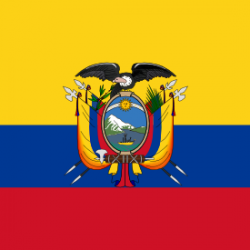
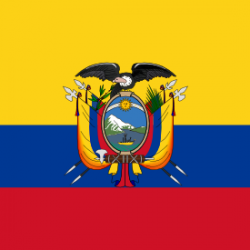
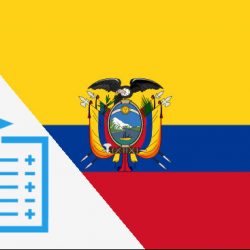
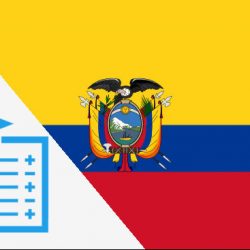
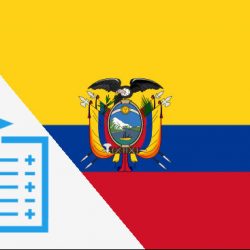
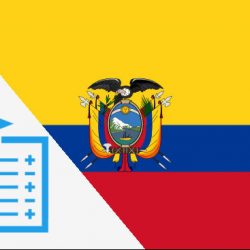
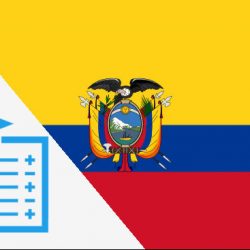
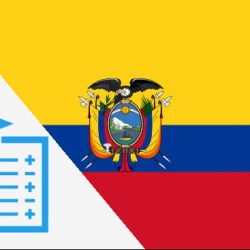
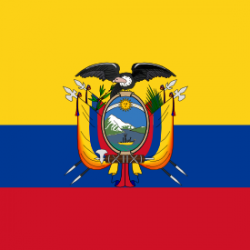
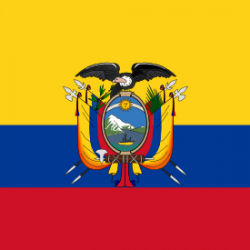
 We will not leak your personal information
We will not leak your personal information